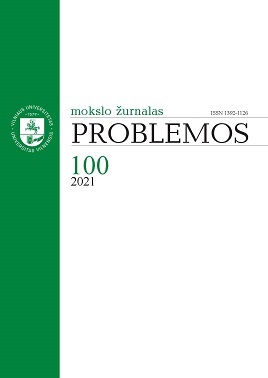Deleuze’o ir Guattari jutimo logika šiuolaikinio meno kontekste
Deleuze and Guattari’s Logic of Sensation in the Context of Contemporary Art
Author(s): Sigita DackevičiūtėSubject(s): Visual Arts, Aesthetics, Contemporary Philosophy, Structuralism and Post-Structuralism, Ontology
Published by: Vilniaus Universiteto Leidykla
Keywords: Deleuze; Guattari; sensation; concept; contemporary art;
Summary/Abstract: Deleuze and Guattari’s concept of art (the logic of sensation) has been interpreted in the context of the opposition between modernism and contemporary art, and then it is either attributed only to modernism, which gives priority to the aesthetic dimension of art, or it is argued that we must see its potential to create “new connections.” These opposing views are expressed by Stephen Zepke and Simon O’Sullivan. However, Deleuze and Guattari’s artistic sensation is not a sensory perception, it is the main concept of their logic of sensation, encompassing both the sensory and the conceptual-virtual dimensions. In the article, I seek to demonstrate that Deleuze and Guattari’s artistic sensation, encompassing both of these dimensions, relates to the general context of Deleuze and Guattari’s philosophy and resonates with the aesthetic and semantic dimensions of contemporary art projects. Discussing Thomas Feuerstein’s installation Prometheus Delivered I demonstrate in what ways the notion of the logic of sensation expands the field of the interpretation of this work of art.
Journal: Problemos
- Issue Year: 2021
- Issue No: 100
- Page Range: 180-190
- Page Count: 11
- Language: Lithuanian

